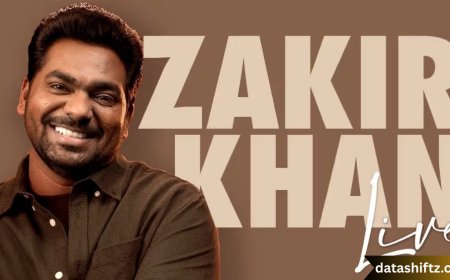Aap Jaisa Koi: The Song That Redefined Bollywood Glamour
Introduction
The Anthem That Changed Indian Pop Culture
When we talk about iconic songs that changed the soundscape of Bollywood, "Aap Jaisa Koi" holds a timeless spot. Originally featured in the 1980 film Qurbani, the song didn’t just become a chartbuster—it became a cultural revolution. Sung by Nazia Hassan, a then-15-year-old Pakistani pop sensation, and composed by the legendary Biddu, the song brought disco music into the Indian mainstream and created a new template for glamorous Bollywood numbers.
With its infectious beat, bold styling, and magnetic screen presence of actress Zeenat Aman, Aap Jaisa Koi is more than just a song—it’s a pop culture moment that continues to be revived, remixed, and revered even decades later.
Origins and Breakthrough Moment
How “Aap Jaisa Koi” Was Born
-
The film Qurbani, directed and produced by Feroz Khan, was already a stylish, action-packed project.
-
Feroz Khan wanted something new and international to add flair to his film.
-
Biddu, a UK-based Indian music producer, was roped in to create a song that would infuse global disco vibes.
-
Enter Nazia Hassan, a young singer from Karachi who had never sung for an Indian film before.
This cross-border collaboration turned into Bollywood’s first disco anthem, shattering musical norms and uniting two nations through a shared love of pop culture.
The Impact on Music, Fashion, and Film
"Aap Jaisa Koi" didn't just break records—it broke barriers.
Cultural and Musical Impact Table
| Category | Impact |
|---|---|
| Music | Brought disco to Bollywood; inspired a new genre of film music |
| Cinema | Elevated item numbers with cinematic glam and production value |
| Fashion | Zeenat Aman's styling became iconic, influencing 1980s Bollywood fashion |
| Pop Culture | Made Nazia Hassan a household name across South Asia |
| Cross-border Unity | Created a rare Indo-Pak collaboration during tense times |
Revival, Remixes, and Reinvention
More than four decades later, Aap Jaisa Koi remains evergreen, constantly remixed and referenced in modern pop culture.
Major Revivals and Modern Tributes
-
2022 Remix in An Action Hero – Recreated by Tanishk Bagchi and sung by Zahrah Khan
-
Dance Reality Shows – Frequently performed by contestants on Indian TV
-
Commercial Ads – Used in fashion, perfume, and luxury campaigns
-
Music Albums – Sampled by international DJs and Indian remix artists
-
Bollywood Tributes – Referenced in films as a symbol of glamour and bold femininity
Despite numerous remixes, the original version continues to evoke nostalgia, reinforcing the idea that some classics can never be replaced.
Behind the Song: The People Who Made It Legendary
| Contributor | Role Played | Legacy |
|---|---|---|
| Nazia Hassan | Vocalist (only 15 years old) | Became Pakistan’s first pop icon |
| Biddu | Composer and Music Producer | Revolutionized disco music in India |
| Feroz Khan | Film Producer and Actor | Known for style and innovation in Hindi cinema |
| Zeenat Aman | On-screen performer | Cemented her status as Bollywood's boldest diva |
| Indeevar | Lyricist | Crafted simple, seductive yet poetic lyrics |
The Lyrics: Simple, Sensual, and Striking
“Aap jaisa koi meri zindagi mein aaye
Toh baat ban jaaye, baat ban jaaye...”
The lyrics—while minimal—convey a universal emotion: the excitement and allure of meeting someone extraordinary. Combined with Nazia’s honeyed voice and Biddu’s synth-heavy production, it became an anthem of longing, attraction, and celebration.
Controversies and Criticism
While loved by many, the song did face pushback in conservative circles:
-
Some criticized it for its bold visuals and western influences.
-
Traditionalists felt it deviated from classical Indian music traditions.
-
Zeenat Aman’s performance was considered “too daring” at the time.
Yet, these criticisms only amplified its popularity, especially among the youth, who viewed it as a symbol of liberation and modern identity.
Legacy of Nazia Hassan
Though she sang only a handful of film songs, Nazia Hassan became an icon.
Nazia Hassan’s Contributions to Pop Music
-
Disco Deewane (1981) – One of Asia’s best-selling pop albums
-
Boom Boom (1982) – Another chart-topper with Biddu
-
Symbol of Indo-Pak unity through music
-
Advocate for youth empowerment and women's rights
-
Passed away in 2000 at just 35, leaving behind a powerful legacy
Modern Interpretations: From Bollywood to Billboard
As Bollywood increasingly embraces global sounds, Aap Jaisa Koi stands as the foundation of musical globalization in Indian cinema. From lounge versions to EDM remixes, the song has evolved while keeping its soul intact.
Even international audiences, especially the South Asian diaspora, continue to dance to its beat at:
-
Weddings
-
Retro parties
-
Fashion shows
-
Club nights
The Song’s Place in Indian Music History
| Element | Historical Importance |
|---|---|
| Genre | First mainstream disco song in Bollywood |
| Voice | First Pakistani female artist to sing in Indian cinema |
| Visual Appeal | Changed how women were portrayed in songs |
| Cross-Border Art | Promoted artistic collaboration during difficult times |
| Lasting Popularity | Still featured in “Top Bollywood Songs of All Time” |
Conclusion: A Timeless Masterpiece
Aap Jaisa Koi isn’t just a song—it’s a cultural phenomenon that redefined music, fashion, and cinematic storytelling in India. It introduced global disco to Indian ears, gave South Asia its first teen pop icon, and carved a path for bold, glamorous music videos long before MTV hit Indian shores.
Its success lies not just in its beat or lyrics, but in its courage to be different. It was futuristic for its time and remains relevant even today. Whether you are humming it at a retro party or rediscovering it through a remix on Spotify, Aap Jaisa Koi continues to seduce, stun, and sparkle—just like it did in 1980.






























